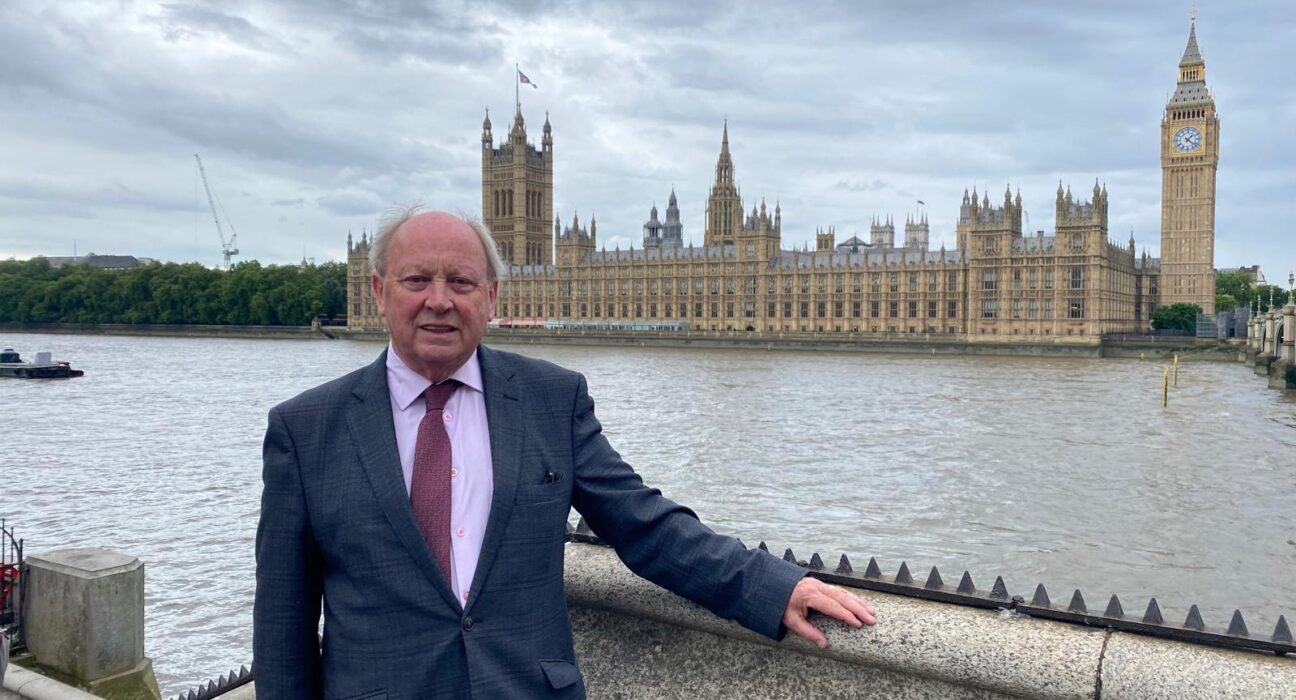A condensed version of this article is published in today’s News Letter.
Until a fortnight ago 30 September and 1 October were to have seen the arrival of two new aspects of the Irish Sea Border.
Although people talk about the Irish Sea Border as if it is already with us, the truth is that there are a number of ways in which it does not yet apply.
Most importantly, the border cannot be regarded as being fully in place until such a time as it can be properly enforced which depends on the provision of Border Control Posts which are still under construction and won’t be ready until July 2025.
This is a sobering thought.
It means that none of us will really know what it is like being divided in two until the border is enforced from the second half of next year!
This week, though, was supposed to have seen the introduction of two new aspects of the border called the Irish Sea Parcels Border and the Irish Sea Green Lane Customs Border, but they have now both been postponed until the end of March. These additional expressions of the border and their postponement raise three issues:
First, the enormity of the DUP deceit when at the end of January their leadership solemnly told us that their so-called ‘Safeguarding the Union’ deal was a significant advance on the Windsor Framework, removing the Irish Sea border. Not only has it not been removed but key aspects of it have not yet arrived!
Second, the practical problems associated with implementing the new aspects of the border which the Government plainly did not want impacting parcel movements in the run up to Christmas or the thinking of MLAs as they approach the so-called Protocol ‘consent vote.’ (This is the vote that must happen before the end of the year, when MLAs will decide whether or not to effectively renounce the rights of their constituents to be represented in the making of the laws to which they are subject in some 300 plus areas for between the next 4 to 8 years.)
Third, the knowledge that postponing does not solve the underlying, intractable problems that made implementation on 1 October impossible, it just kicks the can down the road to the other side of the vote and closer to the point at which the EU will have the leverage it seeks, fully operational border control posts to impose its border from July.
There is, however, one aspect of the border which did come into force on Tuesday. This could not be changed because while EU Regulation 2023/1128 made provision for the arrival of the Customs Green Lane border on 1 October 2024 to be postposed (as it has been), no comparable postponement provision was made by EU Regulation 2023/1231 for the introduction of the second phase of ‘Not for EU’ labels also on 1 October. This development which has taken place, however, has been linked to another that has not.
At the start of the year the UK Government acknowledged that if businesses in Great Britain have to produce separate product lines for Northern Ireland, in order to accommodate ‘Not for EU’ labelling requirements, the resulting costs were such that there was a risk that some would say that as NI is only a small market it would be easier to just stop trading with NI. The Government responded by proposing that the way round this difficulty was to require that all relevant goods produced in GB (not just those destined for NI) must have ‘Not for EU’ labelling so there would be no incentive for traders in GB to cease trading with Northern Ireland. To this end, in February the Government produced draft legislation and put it out to consultation (until 14 March) proposing that from 1 October (to coincide with the Not for EU labelling requirements that have come into effect this week) all relevant goods in GB must have ‘Not for EU’ labels. The new Government has now announced that this legislation is not coming into effect, leaving Northern Ireland once again more isolated within the UK, subject to growing pressures to operate outside the UK single market for goods (which is increasingly becoming the GB single market for goods) and within an all-Ireland single market for goods.
Experts are now talking about the possibility of some products being delisted from Northern Ireland within a matter of weeks.
In responding to this latest Government decision, however, we need to be honest. The real answer is not more EU Labelling but no EU labelling. The truth is that the imposition of ‘Not for EU’ labels on any part of the United Kingdom is completely unacceptable. It is not for the EU to pass legislation first dividing our country into two and then introducing labelling requirements governing the movement of goods from one part of it to another, and yet that is exactly what EU Regulation 1231 does. The UK Government should require, as it can as a sovereign state, and as would any other self-respecting sovereign state, that the EU27 recognise and respect the territorial integrity of the United Kingdom of Great Britain and Northern Ireland by replacing the Irish Sea Border with recognition of the actual borders of the UK, serviced on the UK-ROI land-border, without physical border infrastructure, through Mutual Enforcement. This would not only deal with the Not for EU labels problem. It would also remove the threat of the postponed Irish Sea Parcels Border and Irish Sea Customs Green Lane border and indeed all the existing economic costs of the border, including the absurdly expensive TSS system, as well as crucially providing the basis for the full re-enfranchisement of the people of Northern Ireland.
Jim Allister KC MP

